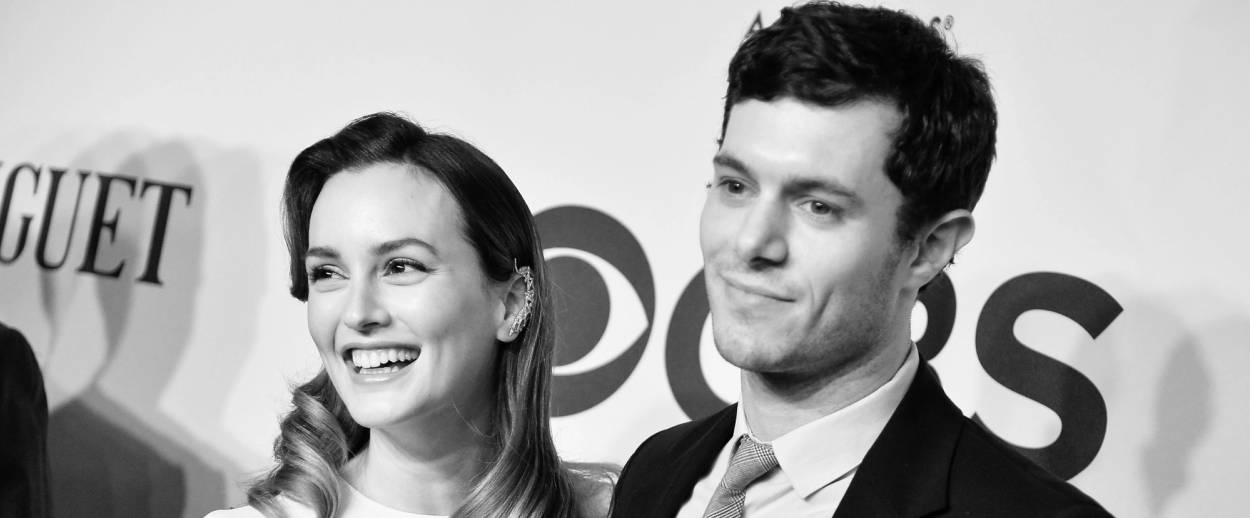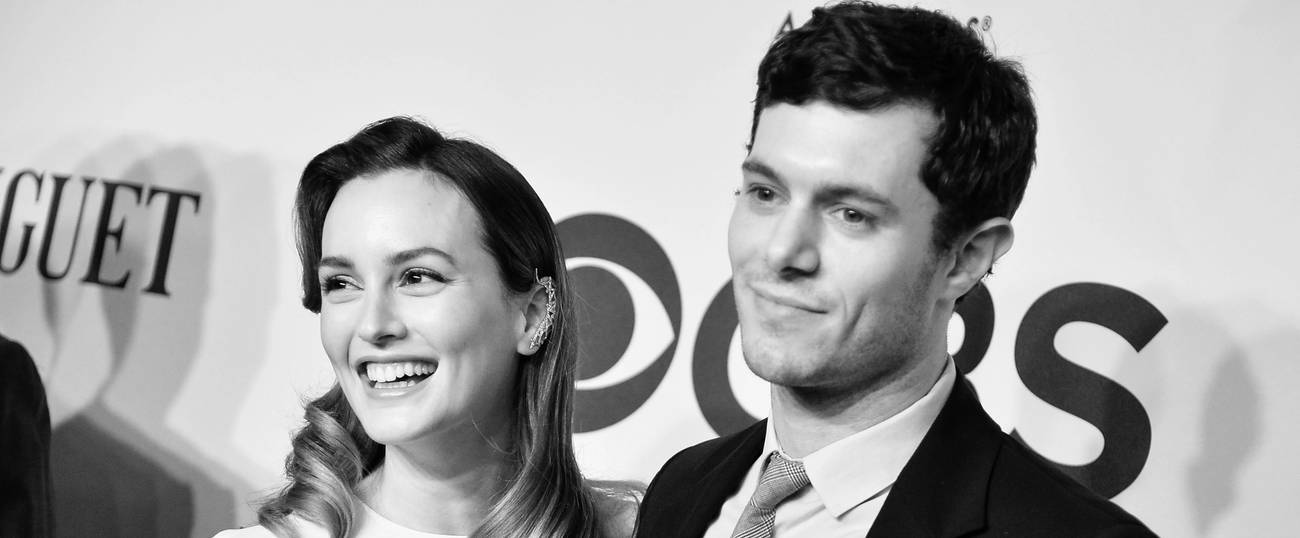Well-Adjusted: When Child Stars Have Kids
Adam Brody and his wife Leighton Meester recently announced the birth of their daughter, Arlo. So why are Millennial celebs seemingly more equipped to parent?




Blessed is this day, “for unto us a child is born; unto us a child is given.” Pardon my Messianic fervor, but news has just come down the pipe that Adam Brody, the Ultimate Jewish Boy of All Time, has just been presented with a baby daughter by his wife, Leighton Meester, who isn’t Jewish but who I always subconsciously think is, because what else could Blair Waldorf be? (The couple officially became parents in August, but they’ve held the announcement because they are very private people, as all celebrity couples are, except when they aren’t.) Their newborn’s name is Arlo Day Brody and I’m sure, in the way of all babies—especially ones who bear the genetic imprimatur of these two extremely puppy-faced, dimpled humans—that she is absolutely adorable. It’s unclear whether she will grow up to fulfill the sort of glorious destiny I have half-joking affixed to her, but one thing is for sure: her birth, with the relative sanity surrounding it, means that baby Arlo presages an entire new era for post-teen stardom.
It used to be that the journey of former child or teen stars was clear: You are adorable and beloved, you make mall appearances and show up on the cover of Teen Beat, then everyone forgets about you until you make news for robbing a convenience store to fund your meth habit. A couple of years later, maybe, you do a People magazine feature (but don’t make the cover) on how you’ve found God, and then a few years after that you’re found dead of a drug relapse (which potentially does make the cover, but only if it was a really slow news week when nobody more famous than you got pregnant or married.)
But now, however, actors who grow up at least partially in the public eye—Meester was a child actor while fame for Brody came in his very early 20’s—seem to be able to deal with it more productively than their predecessors, if not perfectly. Take for example Meester’s Gossip Girl co-star Blake Lively, who married and reproduced with fellow former child star Ryan Reynolds now seems to spend all of her time making jam and showing up on red carpets looking impossibly glamorous. Mischa Barton, Brody’s former co-star on The O.C., followed a slightly more traditional, rehab-studded trajectory, but look, she’s still alive and embroiled in relatively classy legal troubles involving contract disputes over her Beverly Hills real estate, so let’s not start rolling out any Dana Plato comparisons just yet. As for bigger stars, I mean, we can all tut-tut over Miley Cyrus, but does anyone really believe Miley Cyrus is genuinely not okay? I think she just seems like a kooky nudist with a good head on her very bare shoulders.
It’s hard to know exactly what has changed. Young stars, after all, are more exposed than ever (and not just in the Miley sense). Perhaps it’s the nature of such exposure that leads towards better mental health. Even though social media has allowed billions of images one might prefer to stay private spread worldwide at the click of a button, it has also allowed celebrities, particularly young celebrities, to maintain personal control over their own images like never before. They can post selfies to Instagram and tweet about their feelings just like, well, just like everybody else, and maybe that’s the key. When everyone acts like a famous person, does fame really still wield its destructive power? It’s the perfect Millennial Gordian knot: if everybody is special then no one is. And for teenagers plucked from obscurity and put on our nation’s screens at an early age, that seems to be a very steadying thing.
So mazel tov to Brody and Meester and little Arlo. She’s being welcomed into a world by parents who are a lot more normal than they could have been. We’ll see how it all works out in about 16 years, when O.C. Girl: the Next Generation Crossover makes it’s online streaming debut. I can’t wait.
Related: Peeling the Orange
All the Rage
Rachel Shukert is the author of the memoirs Have You No Shame? and Everything Is Going To Be Great,and the novel Starstruck. She is the creator of the Netflix show The Baby-Sitters Club, and a writer on such series as GLOW and Supergirl. Her Twitter feed is @rachelshukert.